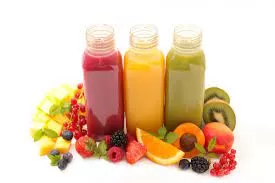Think your juice cleanse is making you healthier? A new study from Northwestern University suggests it might be doing the opposite. The research, recently published in Nutrients, found that a vegetable and fruit juice-only diet—even for just three days—can lead to bacterial changes associated with inflammation and cognitive decline.
Study Findings
Northwestern scientists conducted a study involving three groups of healthy adults. The first group consumed only juice, the second combined juice with whole foods, and the third ate only whole plant-based foods. Researchers collected saliva, cheek swabs, and stool samples before, during, and after the diets to analyze bacterial changes using gene-sequencing techniques.
The results showed that the juice-only group experienced the most significant increase in bacteria linked to inflammation and gut permeability. In contrast, the plant-based whole food group had more beneficial microbial changes. The juice plus food group showed bacterial shifts, but these were less severe compared to the juice-only group. These findings suggest that consuming juice without fiber may disrupt the microbiome, potentially leading to long-term health consequences.
Expert Insights
“Most people think of juicing as a healthy cleanse, but this study offers a reality check,” said Dr. Melinda Ring, senior author of the study and director of the Osher Center for Integrative Health at Northwestern University Feinberg School of Medicine.
“Consuming large amounts of juice with little fiber may lead to microbiome imbalances that could have negative consequences, such as inflammation and reduced gut health,” Ring added.
Why Fiber Matters
Juicing removes much of the fiber found in whole fruits and vegetables, which is essential for feeding beneficial gut bacteria that produce anti-inflammatory compounds like butyrate.
Without fiber, sugar-loving bacteria can multiply, and the high sugar content in juice further fuels these harmful bacteria, disrupting both gut and oral microbiomes. Reduced fiber intake may also impact metabolism, immunity, and even mental health, according to the study.
Rapid Changes in the Oral Microbiome
Unlike gut bacteria, which remained relatively stable, the oral microbiome showed dramatic changes during the juice-only diet. Scientists observed a reduction in beneficial Firmicutes bacteria and an increase in Proteobacteria, a bacterial group linked to inflammation.
“This highlights how quickly dietary choices can influence health-related bacterial populations,” said Dr. Ring. “The oral microbiome appears to be a rapid barometer of dietary impact.”
Next Steps
The study emphasizes the need for further research on how juice and other dietary patterns affect the microbiome, particularly in children, who frequently consume juice as a fruit substitute.
“The nutritional composition of juice diets—specifically their sugar and carbohydrate levels—plays a key role in shaping microbial dynamics in both the gut and oral cavity and should be carefully considered,” said first author Maria Luisa Savo Sardaro, a research associate at Northwestern University and a professor of food microbiology at San Raffaele University in Rome.
The findings also highlight the importance of prioritizing fiber in dietary guidelines and food production. For those who enjoy juicing, Ring recommends blending instead to retain fiber or pairing juices with whole foods to help mitigate the impact on the microbiome.
Disclaimer
This article is based on a recent scientific study and does not constitute medical advice. Consult a healthcare professional before making any significant changes to your diet.












